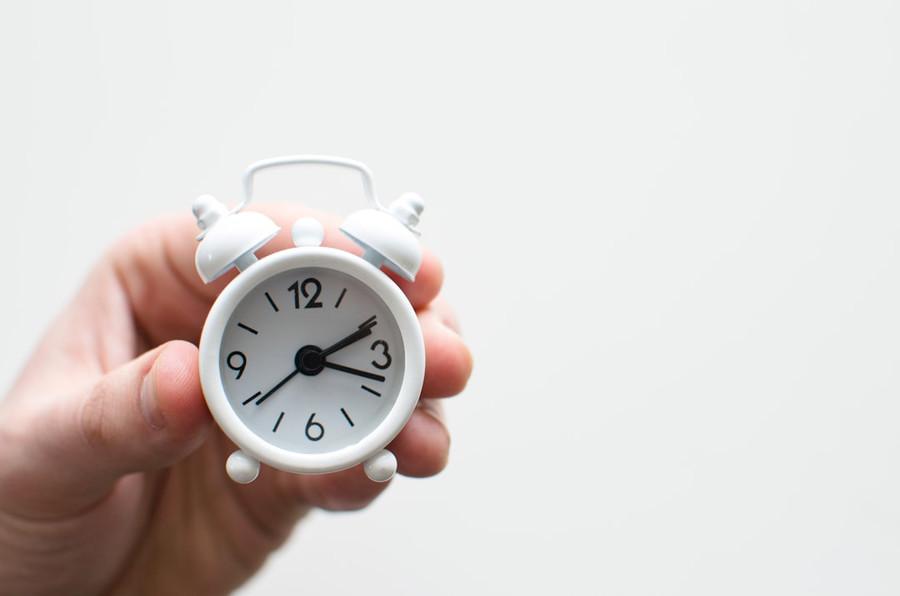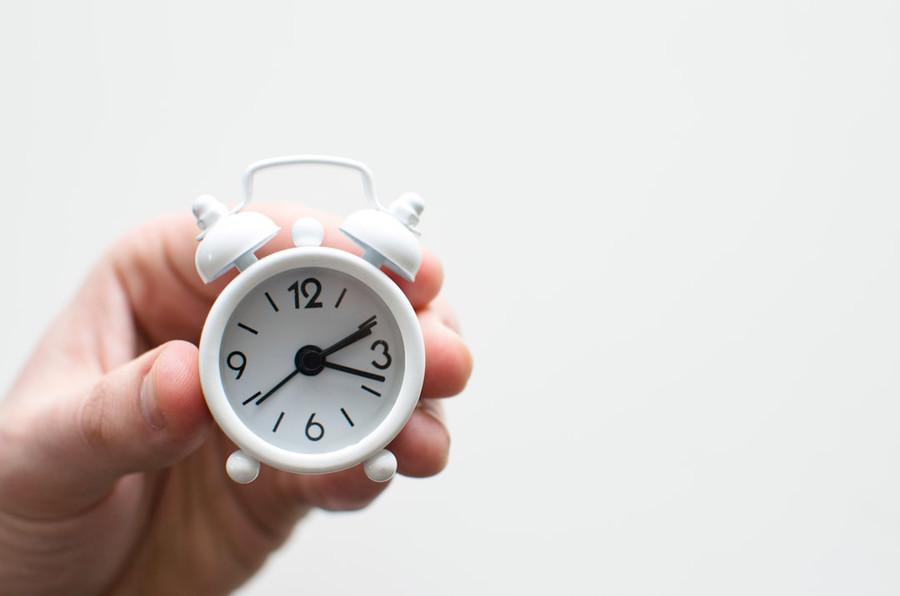The Surprising Effects of Not Setting Goals and How to Avoid Them
Curated from: medium.com
Ideas, facts & insights covering these topics:
13 ideas
·6.89K reads
64
4
Explore the World's Best Ideas
Join today and uncover 100+ curated journeys from 50+ topics. Unlock access to our mobile app with extensive features.
The Surprising Effect of Not Setting Goals
Not setting goals made me accomplish only a few things over the last months. Much less than I expected.
Since I started a new job, I gave up goal setting and planning for a while. I hoped my consistency could deal with everything I had set up. But it didn’t.
I stopped trying hard enough. I found hundreds of reasons why I should give up. And I almost broke my side hustle because I didn’t have goals.
So If you want to accomplish something, goals are still a necessary step you must take. And if you don’t, you will achieve much less than you wished.
74
844 reads
Why Setting Goals?
- A study by Locke and Latham found that goal setting improves performance by providing direction and focus.
- Bandura proved that people with specific and challenging goals had higher levels of self-efficacy.
- Gollwitzer and Sheeran studied how setting goals help individuals to plan and prioritize their actions.
- And Emmons and McCullough found that goal achievement increases happiness and well-being.
So not setting goals could trigger surprising side effects on your performance. Your self-efficacy levels will drop. You will waste your time. And your happiness and well-being will decrease.
71
765 reads
The Surprising Effects of Not Setting Goals
Besides poor and aimless work, there are many other surprising side effects of not setting goals, like working in cycles.
You never know if your work is acceptable until you set goals. So you may repeat the same errors many times. You will stress out. And you may even give up.
But if you set S.M.A.R.T. goals, you will also control and improve your plans so they are updated and efficient. So how can you fix it?
Here are six lessons I learned from my mistakes.
69
620 reads
1 — Feel the urge (I)
Time illusion is a thing.
When you set long-term goals, you can’t track them because you have a lot of time. But in the last moments, you realize you don’t.
But then, your deadline will approach. And you will start working again because you realize you have been delaying until the last minute. And the urge of the deadline will push you again.
In the beginning, your motivation pushes you to work with consistency. But then, you forget about your goal. Every day you will procrastinate because you have time. And you will spend weeks doing nothing.
73
600 reads
1 — Feel the urge (II)
So you must create a feeling of urgency in your life that helps you take action daily. And you can do it in different ways:
- Split longer goals into shorter ones to feel the urgency of doing something.
- Practice daily check-ins to receive instant feedback on your actions.
- Keep track of the productive days and calculate the weekly success percentage.
78
541 reads
2 — Neutralize motivation (I)
I am a big motivation fan. And I’ve extensively produced content about it because I believed in it.
But motivation often fails. And sometimes, you must neutralize it to work at best.
When you only use motivation, you are weak to its swings. And if something goes wrong, it could ruin your entire day. But if you become resilient, it won’t affect your tasks too much.
71
516 reads
2 — Neutralize motivation (II)
So, how can you do it?
- You can build a habit that makes you consistent.
- You may can an unavoidable timestamp where you do a specific task.
- Or you can set small daily goals you must reach no matter what. And even use punishments if needed.
70
500 reads
4 — Don’t fear or panic (I)
When the end of a goal approaches, a little bit of fear helps you work faster and focus better. Under pressure, you often perform better. And for this reason, you must feel the urge at all times.
However, there is a difference between pressure and panic.
The pressure pushes you to work faster to finish before it’s too late. But you won’t even start working on your goals if you panic. You will procrastinate until it is too late. And you will fail.
And most times, it is a matter of entity — high goals trigger big fears.
67
430 reads
4 — Don’t fear or panic (II)
So, how can you improve?
- Set simpler tasks or start with one that becomes complicated later. Since the entity is the problem, you shall begin with something simple that makes you comfortable.
- Use the five seconds rule. Don’t give your brain enough time to think about potential problems. Start the task as soon as you think about it.
- Use robust rewarding systems. You cannot always work because of a reward. But winning a prize can help you overcome some fears in the beginning.
72
423 reads
5 — Solve the reliability dilemma
You are not as reliable as you would like to be. And when you set a goal, it would be better to have someone or something checking on you.
I have always benefited from a reliability system because it helps me think less about consistency and more about the work. But if someone pushes me, I am more aware of the situation. And since I don’t want to lose their time, I am more serious about my goals.
You can build many types of reliability systems. But usually, they will be part of two categories:
- A person that helps you emotionally.
- Or an application that motivates you psychologically.
69
397 reads
6 — Limit your time (I)
Time blocking, bounding, and planning in slots all mean the same thing.
Find the perfect moment to work on your tasks.
But it is not easy to find the perfect timing. It takes a lot of analysis and repetition. And sometimes, a task you scheduled for an hour might take three if you don’t have enough experience.
Also, you must learn to respect limits and stop working when it’s time to relax. Otherwise, you might work too much. And your brain will struggle and become resistant to that task.
67
407 reads
6 — Limit your time (II)
But how can you learn to limit time?
- Practice time-blocking to schedule specific and strict timezones for each task.
- Schedule tasks earlier to know what to do and when to get to work.
- Find the perfect timing for each activity. For example, if the morning fills you with energy, use it as much as possible. Each activity can bring advantages if you find the perfect timing for it.
70
408 reads
Final Thoughts
A life without a goal is purposeless.
Without goals, you start an aimless journey toward the unknown. You will work in cycles without any improvements. And you will stress about things you should have learned already.
Goals can give you clarity. They can help you focus and analyze tasks from any perspective. Therefore, you can spot the errors easier, fix them, and proceed. So never live without goals.
Receive the best content creation infographics directly in your inbox! Join The Challenge.
74
442 reads
IDEAS CURATED BY
Passionate about self-improvement, personal growth, finance, and creativity. I love to inspire people to become the better version of themselves. Author @ www.cosmopolitanmindset.com
CURATOR'S NOTE
Not setting goals made me accomplish only a few things over the last months. Much less than I expected.
“
Cosmin Angheluta's ideas are part of this journey:
Learn more about motivationandinspiration with this collection
How to choose the right music for different tasks
The benefits of listening to music while working
How music affects productivity
Related collections
Similar ideas
7 ideas
5 ideas
7 ideas
Goal Setting: 4 Science Backed Steps to Setting and Achieving Your Goals
scienceofpeople.com
Read & Learn
20x Faster
without
deepstash
with
deepstash
with
deepstash
Personalized microlearning
—
100+ Learning Journeys
—
Access to 200,000+ ideas
—
Access to the mobile app
—
Unlimited idea saving
—
—
Unlimited history
—
—
Unlimited listening to ideas
—
—
Downloading & offline access
—
—
Supercharge your mind with one idea per day
Enter your email and spend 1 minute every day to learn something new.
I agree to receive email updates











